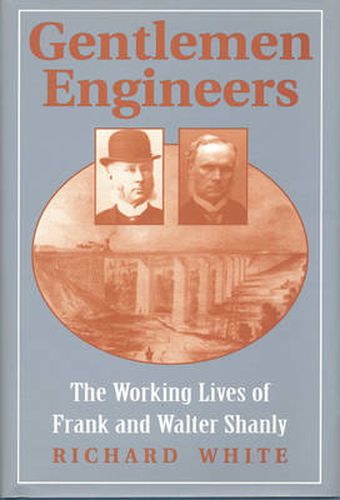Readings Newsletter
Become a Readings Member to make your shopping experience even easier.
Sign in or sign up for free!
You’re not far away from qualifying for FREE standard shipping within Australia
You’ve qualified for FREE standard shipping within Australia
The cart is loading…






Gentlemen Engineers tells the engaging story of the working lives of Frank and Walter Shanly, two well-connected nineteenth-century Canadian civil engineers and businessmen who worked on many of the significant projects of the age. Drawing on rich documentary sources, Richard White reveals details of their work, not just in the office and field, but in their homes and private studies as well.
The most striking discovery White makes is that the civil engineering profession these brothers entered in the 1840s was already an established profession with fairly high social status. The Shanlys were from an old Irish gentry family, but found the profession quite compatible with their social position and gentry culture. The author thoroughly explores the connection between the Shanlys’ as engineers and gentlemen.
White finds another unexpected theme in their lives. In much of the recent social history of business, studies of elite nineteenth-century businessmen have tended to concentrate on power and status: how these men acquired, consolidated, and transmitted it over generations. But the careers of Frank and Walter Shanly were, in fact, full of hard work, struggle, and disappointment.
This study is an important contribution to our understanding of civil engineering professionalization, and to the modernization of business practices in nineteenth-century Canada.
$9.00 standard shipping within Australia
FREE standard shipping within Australia for orders over $100.00
Express & International shipping calculated at checkout
Gentlemen Engineers tells the engaging story of the working lives of Frank and Walter Shanly, two well-connected nineteenth-century Canadian civil engineers and businessmen who worked on many of the significant projects of the age. Drawing on rich documentary sources, Richard White reveals details of their work, not just in the office and field, but in their homes and private studies as well.
The most striking discovery White makes is that the civil engineering profession these brothers entered in the 1840s was already an established profession with fairly high social status. The Shanlys were from an old Irish gentry family, but found the profession quite compatible with their social position and gentry culture. The author thoroughly explores the connection between the Shanlys’ as engineers and gentlemen.
White finds another unexpected theme in their lives. In much of the recent social history of business, studies of elite nineteenth-century businessmen have tended to concentrate on power and status: how these men acquired, consolidated, and transmitted it over generations. But the careers of Frank and Walter Shanly were, in fact, full of hard work, struggle, and disappointment.
This study is an important contribution to our understanding of civil engineering professionalization, and to the modernization of business practices in nineteenth-century Canada.